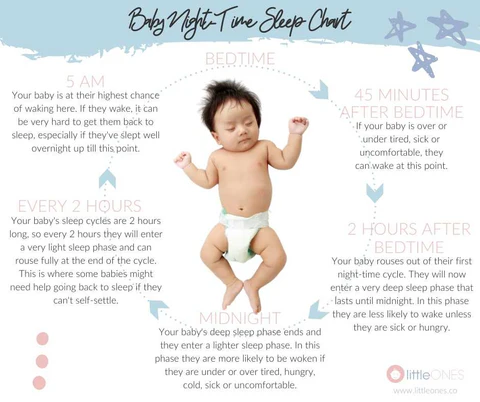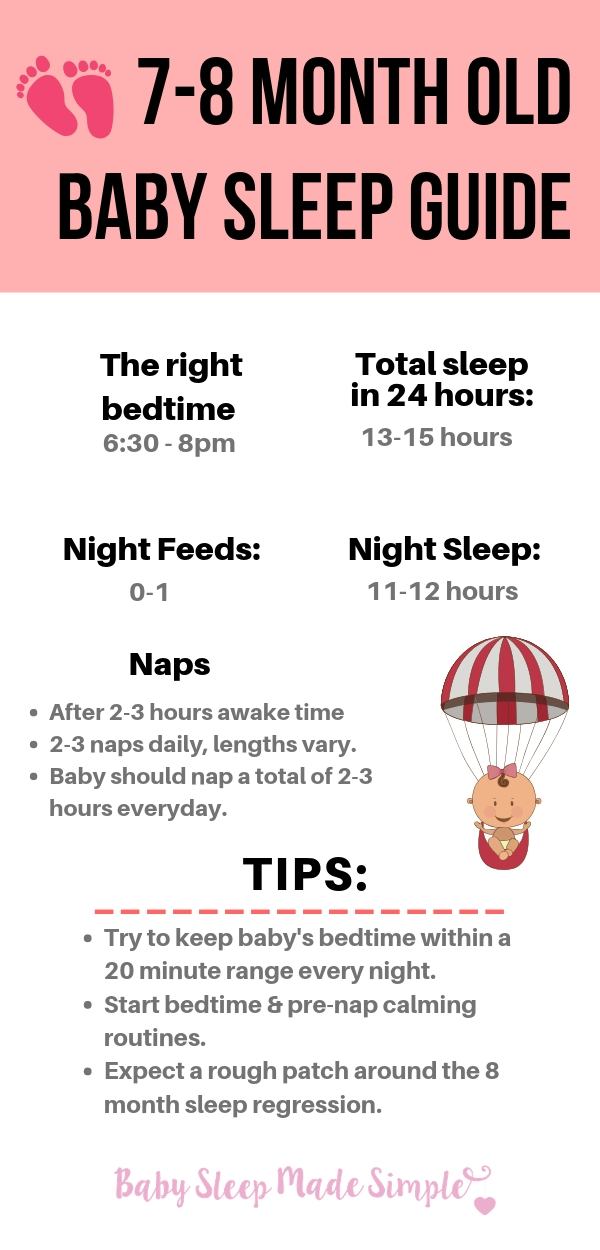7 week old baby wont sleep
 How to Get My 5, 6, or 7 Week Old To Sleep | The Baby Sleep Site
How to Get My 5, 6, or 7 Week Old To Sleep | The Baby Sleep SiteGet rid of the frustrating problems of the baby's sleep and tearing tears with our sleep guides and sleep queries that allow you to get the rest you need! No products in the cart. Uncreated contentHow to get my 5, 6, or 7 weeks of age to sleep Daniella Knight in — Last Updated: February 3, 2020 One of the most common questions we have here at The Baby Sleep Site® is "How can I get my baby to sleep?" Especially when it comes to newborns, they seem to be experts in throwing curved balls, just when we think we've discovered them! So, today we're answering the big question for new moms - how can I get my 5, 6, or 7 weeks old to sleep? Let's take a look at the 6 steps to help your 5, 6, or 7-week sleeper. Your newborn is amazing! There is no denial that, and your little teenager who seemed to sleep most of the day, you can start having some longer periods of alertness, be able to grab something when you put it in your hand, start trying to beat on nearby objects, and even track them better with your eyes. This is very exciting! But this can also mean that sleep can become more touching and unpredictable. Who knew your sweet and adorable little joy package could also make you so confused? We did it! And, we have the keys to get your 5, 6 or 7 weeks (and YOU) the best possible dream! How to get my 5, 6 or 7 weeks old to sleep on an opportunity And, now for details...1. Develop a sleep routine for your age of 5, 6 or 7 weeks Setting the sleeping environment is crucial and part of your baby's taking is bedtime. Although this may feel very early for you, your amazing newborn is learning every second. So, if you haven't started yet, there's no better time to start practicing a consistent set of steps you do in every sleep period, at night and at bedtime. It may be useful to keep it short and sweet at this age. You could say good night to the house, lower the lights, close curtains, change your baby's diaper, sing a crib song, nurse or offer a bottle, hug the baby for a few minutes while she burys, and then put your baby to sleep while she says a key phrase (e.g., "I love you. Time to sleep. Night." As your baby ages, you may want to add a story, for example, but right now it's better to keep it brief. After all, those 6 weeks have very short sleep periods and it is important to avoid overtiredness. 2. Check your schedule for 5, 6 or 7 weeks I know what you're thinking... it's impossible to have a schedule when every day is so different. And we do not recommend having a strict schedule with your newborn, but it may be useful to think about your day in terms of activities and start laying the foundations for more coherence on the line. Now that your baby's hormones are starting to normalize, and she's starting to stay awake for the day longer (in opposition to looking with love towards you in the middle of the night!), it will be easier to start setting a more consistent time of awakening, and the first nap, for example. This can also be helpful in making things feel a little more predictable in the middle of the "newborn fog" that many parents can experience. What kind of schedule do you order? Look at us or !3. Consider soft sleep training (or training) for your 5, 6 or 7 weeks old If the above steps have not significantly improved your 5, 6 or 7 week old dream and you have downloaded our free e-Book, it is likely that your baby may have some sleep associations that need to be solved with smooth sleep training. Ideally, you would get a professional evaluation of your baby's sleep challenges, but if you feel some dependency on parental help it might be part of the problem, then you can gently consider the dream of training your baby into a more independent dream. This essentially involves helping your baby learn to sleep less with you – at this age it would be a very gradual process and with much security and comfort of you along the way. Not all babies can be ready for this, but many parents are surprised at the independence that their newborn can handle if they are given the opportunity. Given the age of your baby and our experience, however, we strongly feel that this should be done using a smooth and practical sleep training method that limits crying. You're not sure where to start? Take a look 4. Create a plan for your 5, 6 or 7 weeks old If soft sleep training is something you are considering, it will be important to find out what to do next. Some of us are planners and others just jump. If you're not a planner, you can certainly skip this step, but if you've been trying to help your 5, 6 or 7-week dream for a while now, you've developed a routine, reviewed the timetable recommendations, and plugged into yourself without a whole strategy is not working that well, maybe a plan is just what you're missing. After all, it's hard to know how to get to where you go without a travel plan. Make the plan as detailed as you want, but having a step-by-step plan helps you stay on track, committed and consistent. Remember that things will not go quickly at this age, so it is important to take a step at a time, but not to lose sight of your general goals. Are you not sure where to start or need help to create your baby's sleep plan? Consider or let us create one for you and your baby.5. Get support for parents of their 5, 6 or 7 weeks (you!) We heard everywhere that "a town is needed" to raise a child, but it went away like the days when we have a lot of help nourishing our babies. I don't know about you, but my mother went out a week when my first baby was newborn, and that was it. My husband and I were mostly alone. There are no aunts who keep the baby regularly while I took a nap or enjoyed a meal (hopefully hot). So going through sleeplessness during this period of 5, 6 or 7 weeks can be difficult without support. Sometimes we have to recruit our own people. Consider or ask your partner, friends or family members to help you implement your dream plan. Having a support system instead can make all the difference in the world in achieving your dream goals!6. Get ready for your next 5, 6 or 7-week speed pump Whether you've already progressed in your 5, 6 or 7-week sleep or you're just starting on your better sleep trip, it's important to take into account what comes next. Why? Because babies are growing and changing at an incredible rate! So get ready and make sure you plan forward, and you have a game plan instead, before the next dream challenge arises. About 3 to 4 months old, your baby may start experiencing your first sleep regression. What is a "" question? Now is also the time to start thinking about how you will help your baby through any possible setbacks (dention, travel and disease are CHILD!) – sometimes the key to overcoming or even avoiding setbacks is to know when they are likely to happen, what is going on when you experience a sleep change, and have a game plan in place for how you will get related through them! knowing So, you have 5, 6? In more than 10 years, we have more than 10,000 comments on our blog. At this time, we are no longer accepting or answering blog comments. We'd love to hear from you! To help with your specific sleep problems, please learn more about us or ours. Or, consider a quick and useful answer! In more than 10 years, we have more than 10,000 comments on our blog. At this time, we are no longer accepting or answering blog comments. We'd love to hear from you! To help with your specific sleep problems, please learn more about us or ours. Or, consider a quick and useful answer! Primary sidebar Are you tired of a sized tip? About Nicole Father's Stories Contents Sleep and Sleep Patterns Feeding and sleep schedules Sleep training guides Guides to Baby Dream How? Naps Figures Reader interactions Comments Amanda says My 5-week-old will only stay on your bassinet for short periods of time for the night and naps (usually just a few minutes) before weeping but sleeps great when it is celebrated. I know this is normal, but it means I have to sit up with her all day and night (I'm not comfortable sharing bed). This is exhausting, and I'm afraid to sleep while I hold it. Any tips to sleep on your bassinet instead of a person? Thank you! Danielle says Hi, Amanda. Thank you for using The Baby Sleep Site as a resource! I'm so sorry to hear you're having this problem – my daughter was like that, and she was so exhausting. We have two articles that I think will help here: Also, if you're not trading, consult with your pediatrician about it – a swaddle can help many babies feel held and sleep better. I hope this helps, and good luck! He says: The child begins to develop quickly after spending two months in the world. The breeding style also changes as the baby ages. Keep reading the article if you want to know the changes you'll see in the 7-week baby. Janelle Reid says @Aiman, Thank you for coming and leaving a comment and more resources! 🙂 He says: Really appreciated for your amazing article. Go on, good things. Thank you for this valuable information. Jessica Diller says @real Thank you for reading and for taking the time to comment! He says: Hi. Daniella KnightNice article you shared. Just impressive. I have developed a consistent sleep routine for my daughter. I also do sleep schedules and try to follow that routine. I hope to train your soft sleep training. I already believe a dream plan for my family, I think if we change our day-to-day sleep schedule, then it will be more effective for my newborn daughter. She's sleeping much better now. He's always happy. Thanks again for your article. It makes me better to change my daily schedule. From Cynthia Carrillo Neosha says @Cynthia – I'm glad you enjoyed the article and thank you so much for commenting. ; Right now.
:max_bytes(150000):strip_icc()/babys-first-year-07-5b7c159f46e0fb00504e7096.png)
Your 7-Week-Old Baby: Development & Milestones
Baby Won't Sleep? 11 Common Problems by Month Age and What to Do

5 Reasons a Baby Won't Nap | The Baby Sleep Site

Newborn Not Sleeping? Here Are 6 Reasons Why | The Baby Sleep Site

Your baby: 7 weeks old
/babys-first-year-clean-07-5b7eeae1c9e77c00259f8e8e.png)
Your 7-Week-Old Baby: Development & Milestones

Why baby wakes EVERY 2 HOURS. All night long. - Little Ones

Top 10 Baby Sleep Tips That'll Help Baby Sleep Longer Stretches

Your baby: 7 weeks old

Helping Your Newborn Sleep at Night | Happy Family Organics

Baby and newborn sleep routines: a guide | Raising Children Network

Newborn sleep patterns: A survival guide

Sleep Schedule for Your Baby's First Year – Happiest Baby

8 Infant Sleep Facts Every Parent Should Know

7 Week Old Baby | Your Baby Week By Week | BellyBelly

Infant Torticollis: What Parents Should Know About Signs & Treatment

7-Week-Old Newborn Baby | Month by Month

Co-sleeping with babies | Raising Children Network
/babys-first-year-04-5b7c14ed46e0fb00504e54a6.png)
Your 4-Week-Old Baby: Development & Milestones
Baby Won't Sleep in the Crib? 5 Reasons Why and What to Do

The Newborn Routine That Will Help Baby Fall Asleep Faster

7 Month Sleep Regression Advice That Works!
6 week old baby won't sleep — The Bump

Top 10 Baby Sleep Tips That'll Help Baby Sleep Longer Stretches
Newborn Sleep Guide: How Many Hours, Baby Noises & More
/babys-first-year-08-5ba29194c9e77c0057cff781.png)
Your 2-Month-Old Baby: Development & Milestones

Your baby: 9 weeks old

Newborn development at 1-2 months | Raising Children Network

5 Common Sleep Problems and Solutions | Parents

7 Secrets of a Baby Sleep Expert | Johnson & Johnson | Johnson & Johnson

Baby Crying in Sleep: How to Soothe Them

5 Common Sleep Problems and Solutions | Parents
Fussy evenings" with a newborn - La Leche League GB

Baby Sleeping on Side: What Can Happen and When Is It Safe?

7 Month Sleep Regression Advice That Works!

Common Myths About Baby Sleep Challenges • ZERO TO THREE

Help – My Baby Will Only Sleep On Me!

8 Solutions to Get Your Baby to Sleep Through the Night | Nested Bean
Baby Won't Nap

Giving it Grace: Reasons my 7-week-old wont sleep
Posting Komentar untuk "7 week old baby wont sleep"